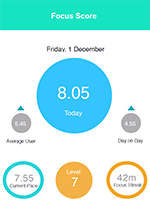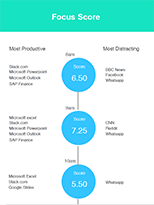A new software solution to reduce digital distraction and boost workplace performance is being developed by three Cambridge Executive MBA alumni.
Today’s office worker is tempted by numerous digital distractions throughout the day. The regularity in which workers use social media platforms and messaging apps at work has resulted in a digitally distracted workforce suffering from loss of focus, stress and anxiety, whilst costing employers billions of dollars in lost productivity.
That said, these very distractions have also revolutionised how we live and work, and are a vital necessity in today’s digital age. There is a balance to be struck in how workers use digital devices, without compromising their productivity and wellbeing.
Three alumni from Cambridge Judge Business School’s Executive MBA programme believe they have found a solution to this problem. In 2017, they joined forces to develop a multiplatform software solution called Stroofy, which aims to improve users’ focus in the workplace and reduce digital distraction.
“Fitbit for the office”
Stroofy aims to improve users’ focus by gamifying digital distraction, in the same way that Fitbit gamifies exercise. Stroofy tracks how often a user visits a self-identified “distracting” app or website, giving them a daily score on how focussed they’ve been during the day. Every minute without checking Facebook or browsing LinkedIn, the score goes up; every time the user gets distracted and logs in, the score goes down.
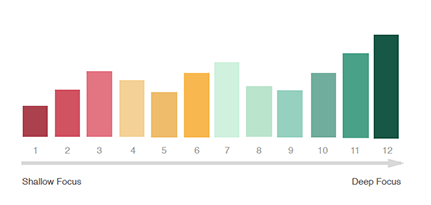
“During the working day, it takes approximately 20 minutes to become focused on a task, another 23 minutes to reach a truly deep level of focus or flow,” says Stroofy CEO Damian Malone. “Any form of digital distraction, including social media, immediately undoes 40 minutes of work to reach this deep level of focus, and the potential productivity is lost. Scoring users’ levels of focus allows them to understand their focus habits, and improve their productivity on a daily basis.”
Applying Stroofy to the workplace

Damian and his team are designing Stroofy for businesses wanting to pro-actively reverse the decreasing productivity of their workforces. “Companies we’ve spoken to might be concerned about the impact of AI in the future, but their most pressing concern right now is the disruption of digital distraction and the impact it’s having on their workforce.”
Where an app like Slack can improve a business’ teamworking and communication skills, Stroofy could be utilised to improve workplace productivity in large organisations by ‘gaming the workplace’.
“What we mean by ‘gaming the workplace’ is allowing groups of workers to create and join their own leaderboards”, explains Damian. “A department of ten could set up a leaderboard amongst themselves, and track their focus score against each other in the spirit of friendly competition. When we compare our performance to our peers, we are more likely to improve our focus to outperform in the workplace.”
Damian stresses that voluntary privacy, data ownership and transparency are core tenets for Stroofy. It is up to each user to decide if they want to share their focus scores or not. “While opting to share brings broader insight, Stroofy rewards all levels of user engagement, and the focus is very much on self-improvement.”
Reducing workplace stress and anxiety
Improving workplace productivity is more than simply reducing the time spent on social media and smartphones. It is also about guaranteeing workers’ mental wellness.
Studies from bodies such as the Royal Society for Public Health, and even Facebook’s own staffers, recognise a link between social media use and social anxiety, stress and depression. One answer the marketplace provides is, yes, more digital apps to promote mental wellness, but Stroofy’s Chairman Per Watle believes that their product can be positioned differently.
“Wellbeing apps deal with the symptoms and fallout of digital distraction, whereas Stroofy is pre-emptive. We want to inform users of their focus levels so that they’re able to rewire their digital habits, improve their productivity and promote a better quality of life. By understanding and improving your focus during the day, you get more done, reduce your stress and spend more time on the important things in your life.”
Founding the company with an Executive MBA
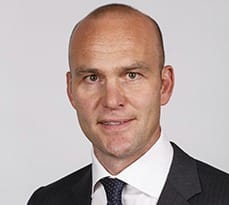
The idea behind Stroofy came about when Damian, Per and fellow student Olli Leminen met on Cambridge Judge Business School’s Executive MBA programme. “After discussing the idea over a drink in a pub, we were able to explore the idea during our time at Cambridge,” explains Per. “We began to develop the concept during one of our many Marketing, Strategy and Organisational Behaviour classes, which gave us the confidence to build our new company once we had graduated.”
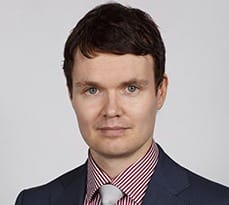
The Cambridge EMBA has a tradition for incubating new business ideas. It has enabled senior professionals to bring their own specialisms and expertise to the table and collaborate with like-minded peers in developing new ventures. Damian was a VP for a global consulting firm; Per is a former CEO at a corporate brokerage and a serial entrepreneur; Olli is a VP in value innovation for global market research firm. Together, they work remotely from Ireland, Norway and Finland respectively, a mode of working that they developed during their EMBA studies. Whilst they have their core team in Dublin, the Co-Founders find no drop off in productivity utilising this approach when combined with regular face-to-face meetings in both Oslo and Dublin.
Next steps
After raising €350,000 in their first round of funding, the team, which also includes leading PhD graduates from Cambridge, have built a proof-of-concept, which they will be testing on MBA and EMBA students from their alma mater, in addition to some leading professional services firms. “By testing Stroofy with CJBS students and leading professionals,” says Damian, “we want to show that the platform is applicable to those at all levels of the workforce. The insights that these very busy, time-poor individuals can provide will be invaluable in assessing Stroofy’s viability in our core target markets.”



